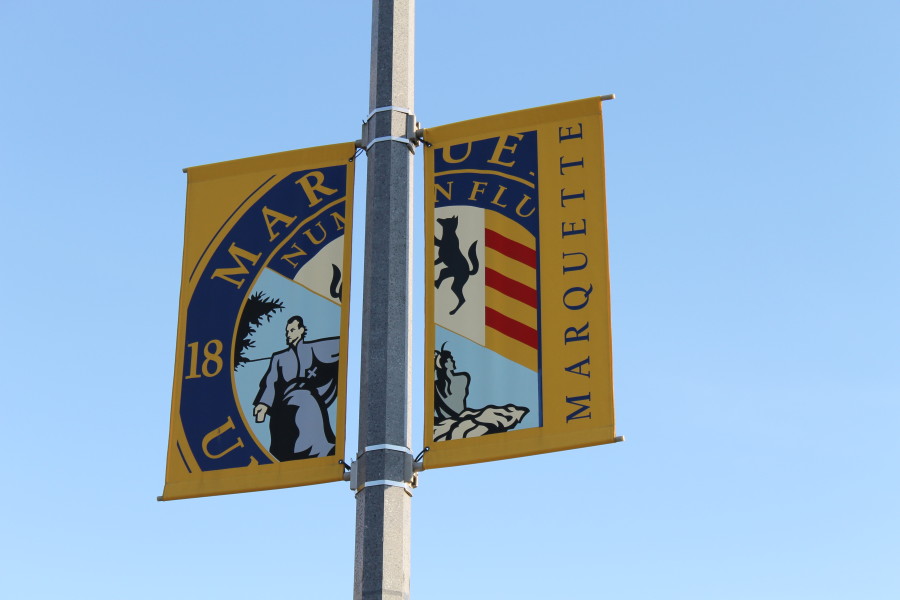
Throughout the past several years, the First-Year Reading Program has been one of the main staples of New Student Orientation. The program acts almost like a rite of passage for incoming students, something that, whether we actually read the books or not, we had memories attached to.
The experience – from receiving our books over the summer and participating in group discussions to congregating in the Al McGuire Center and hearing the author speak – is one that not only unified the student body, but exposed each incoming class to the university’s values of social justice and global engagement.
For that reason, it came as a surprise to many when, on Feb. 2, the Office of the Provost announced the program’s suspension via a news brief.
This past summer, the program saw a significant overhaul: the role of discussion leaders transferred from Orientation Staff members to a corps of specifically-trained student moderators, discussions were moved online to D2L and the assigned book—“March: Book One”—was a graphic novel, chosen with the intent to appeal to self-professed “non-readers.”
Like any new initiative, the latest version of the First-Year Reading Program was not without its hiccups. Many students, no longer required to physically sit in at their group discussion, never logged onto D2L to partake in the conversation, doing so without any defined ramifications. Moderators, too, began to drop off as Orientation Week drew closer. Those who did stay sometimes found themselves overwhelmed with the high participant-to-moderator ratio, struggling to keep up with discussions across their assigned groups.
Of course, these were growing pains, kinks that would surely be ironed out as students and staff learned from their mistakes and improved on their methods for the following year. Yet it seems that, rather than giving the program one more chance, or even reverting to the previous in-person format, administrators saw these inevitable and minor mishaps as grounds to bring the program to a full stop.
In the announcement, the Office of the Provost noted the intent to use the group discussion format to cover topics such D2L and academic integrity. To date, it is not known whether a similar social justice-oriented activity will fill the gap the First-Year Reading Program leaves behind.
In making its decision, the Office of the Provost cited “declining interest in the program among faculty and students.” This is a strange, arbitrary factor, as students certainly aren’t allowed to exempt their required mathematics or philosophy classes simply due to “declining interest.” As it stands, the First-Year Reading Program seems to be lumped together with other Orientation Week activities such as the square dance or the carnival—whose cancellation on a basis of “declining interest” would make more sense—rather than highlighted for its own merits.
For many students, the First-Year Reading Program is one of their first and few opportunities to be exposed to social justice issues in a controlled setting. As students of a Jesuit university in an urban setting, these issues are crucial to our learning experience. Whether students chose to make the most of it or not ultimately rested on them, but at least the university made the effort to provide this opportunity.
Without the program, the potential for the university to fulfill its mission of forming well-informed, service-oriented members of the community from the get-go is diminished dramatically.
If the First-Year Reading Program must be retired, it must also be suitably replaced—perhaps that means assigning a different form of media, such as a film, or continuing speaking engagements for freshmen to attend, but without a required reading component. Whatever it is, it must fill the role its predecessor left open.


